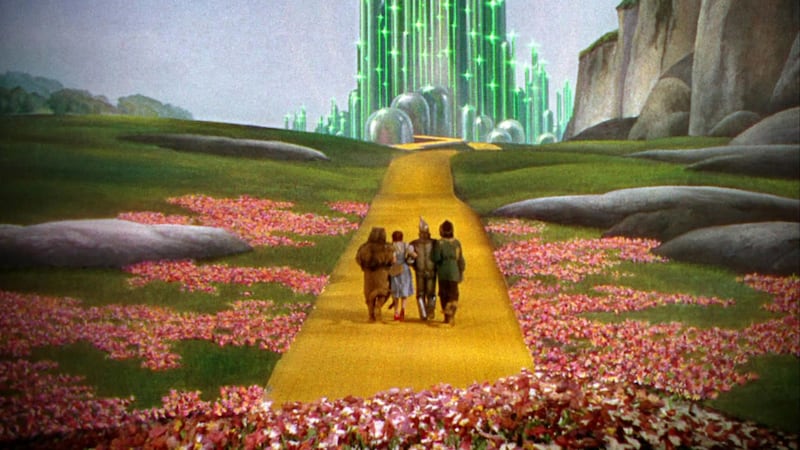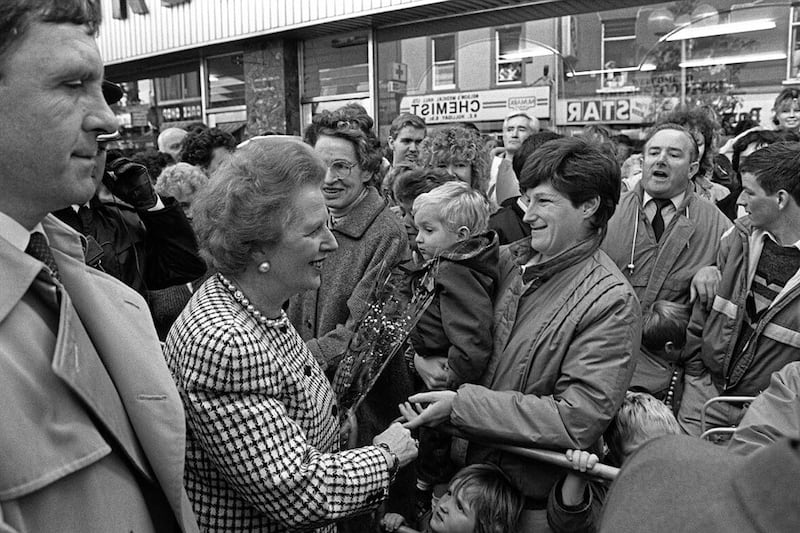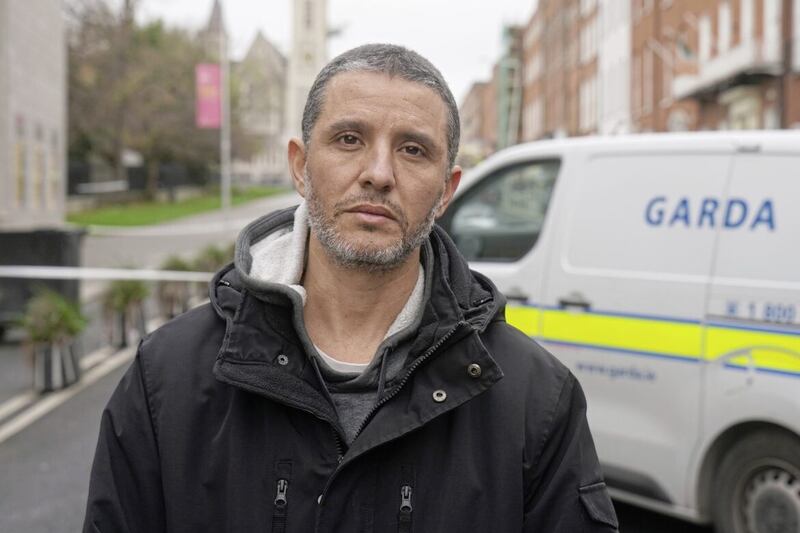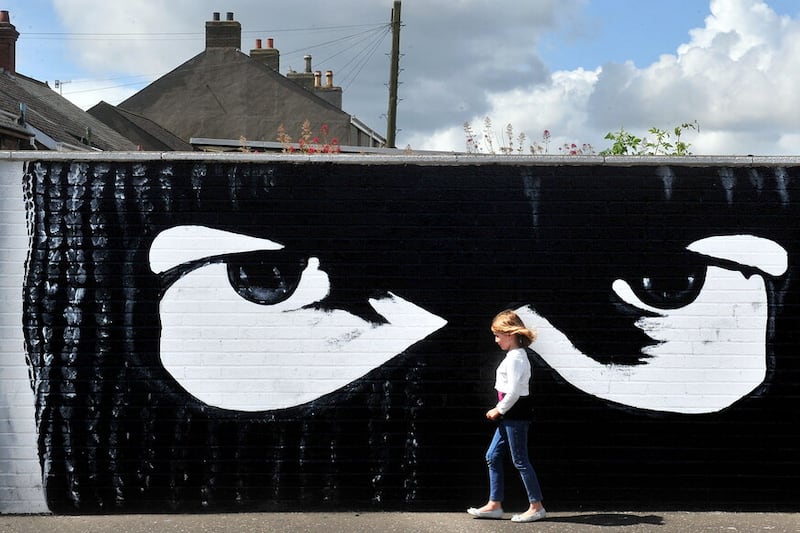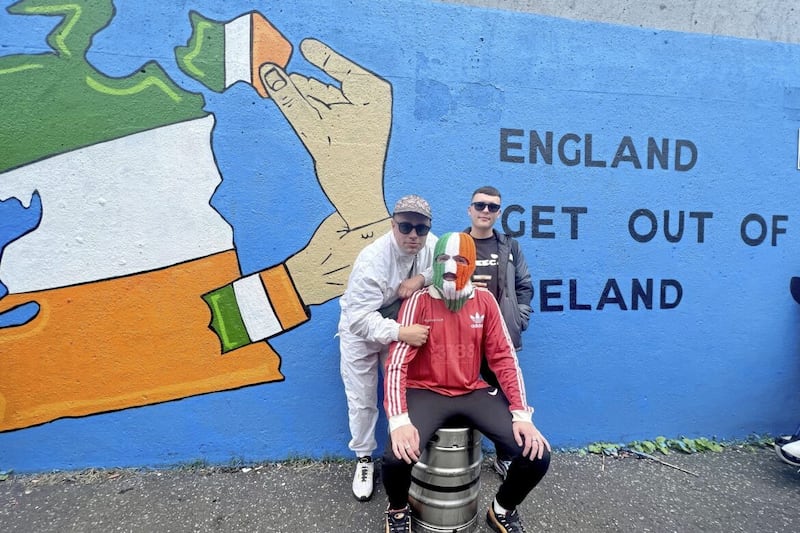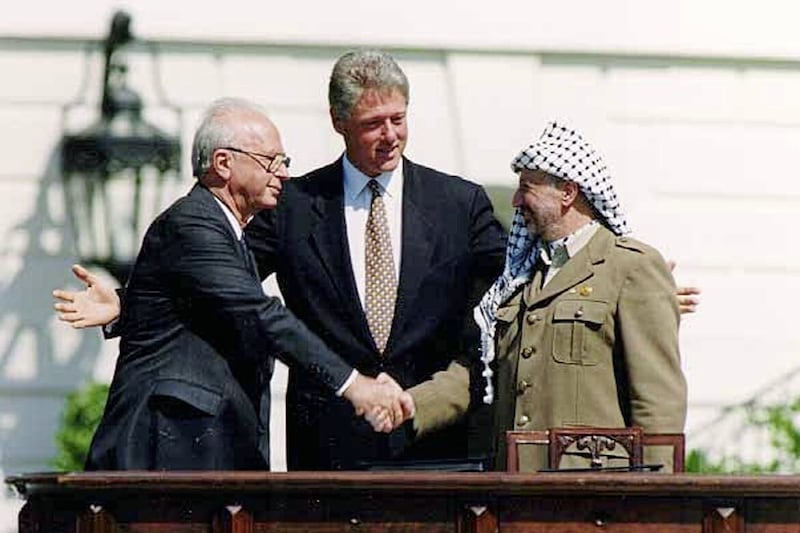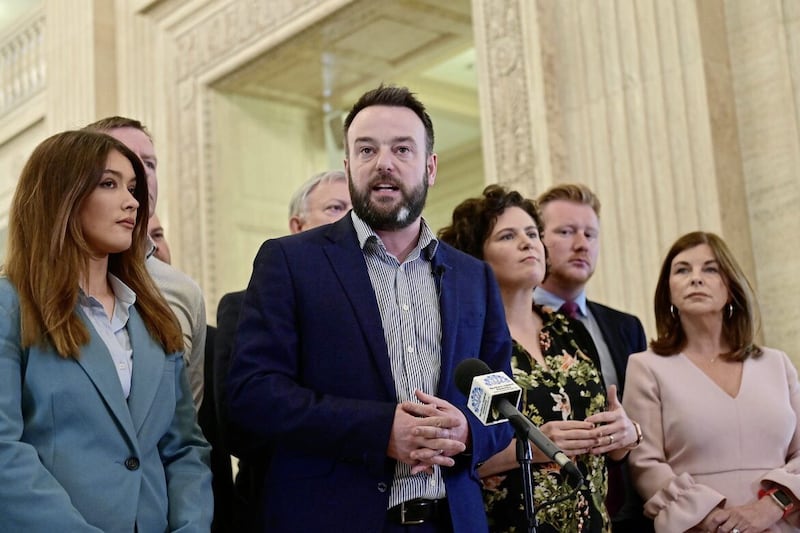Last week a new children’s park opened up in Stormont and no, it was not intended as a recreation ground for the inmates better known as MLAs. They have the talks process for that.
The play park is named after the late Mo Mowlam. It is doubtful if any other secretary of state is remembered with such warmth.
The park seems to be a wonderfully inclusive facility for children of all abilities. Mo would have approved. Looking at Mo’s portrait by John Keane, it is hard to believe this force of nature is no longer here. So it is fitting that she has been remembered at Stormont with a facility which will be a place of fun.
I first met Mo Mowlam thirty-two years ago this month. I was interning in Washington DC; she had been just elected as MP for Redcar and had been sent to meet with the Democratic National Campaign Committee. She was a whirlwind. Her energy knew no bounds. Even better was her enthusiasm for a bit of banter and a drink. We caroused our way through quite a few Irish bars. Mo was fascinating - she spoke authoritatively on global politics, poverty and economics. And yet managed to still be coherent on those subjects at 3am when her political counterparts had long faded.
When she came to Northern Ireland as shadow secretary of state she asked me to give her a tour of Armagh and Fermanagh. As we set off in my sturdy purple Renault 21, she kicked off her shoes, hoisted her skirt above her knees and put her feet up on my dashboard. At that moment I realised that Northern Irish politics was about to be hit by a tornado.
Mo Mowlam was the first female shadow secretary of state and secretary of state. Many male politicians from Northern Ireland didn’t quite know how to deal with her. Most were used to deferential female colleagues, the type who were supportive in the background, who made tray-bakes or organised raffles and sold tickets. The great strength of Mo was that she went above the heads of the local politicians and spoke directly to the general public - and they connected.
In a way her popularity (and her illness) was her undoing. She was the catalyst for our peace process but has been largely written out or cast to the sidelines in the narratives written by many of the protagonists who have taken to print since 1998.
And yet still her memory survives whilst a long list of forgettable and bland incumbents of Stormont House are forgotten.
Mo was essentially a campaigner more than a politician and there was more than some irony that as she was being memorialised at Stormont, another veteran campaigner, Ivan Cooper, was slowly ebbing out of this world.
Colourful doesn’t even come close to describing Ivan Cooper.
Cooper is one of those totems which explodes and exposes the unionist myth about the campaign for civil rights in Northern Ireland.
As a former young unionist, Cooper the equal rights campaigner was the inconvenient truth that unionist political classes couldn’t stomach. Big house unionists had been deceiving and hoodwinking the working class unionist population for years whilst ignoring their educational, social and economic well being.
Ivan Cooper, like John Hume, knew flags whether they be Union or Tricolour put no food on the table nor paid the rent. Cooper and his South Armagh counterpart, the late Paddy O’Hanlon, were spellbinding orators.
His death marks another sad milestone in the passing of an extraordinary generation who peacefully but courageously campaigned for social change. But he won’t be forgotten.
Just as Mo Mowlam is stitched into the fabric of our peace process, Ivan Cooper is forever cast into the celluloid history of the Civil Rights movement. At pivotal moments in our history, Mowlam and Cooper were present and no amount of revisionism can write them out.

